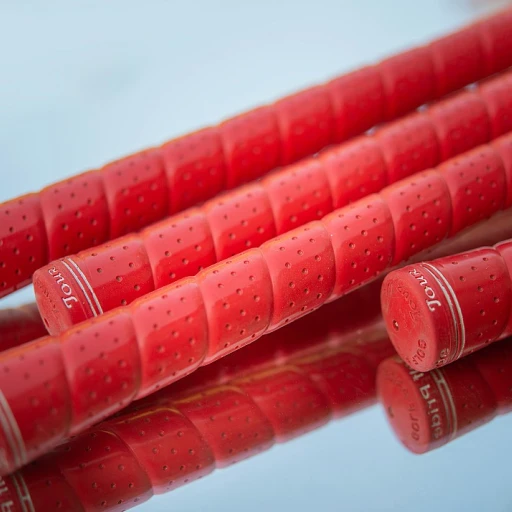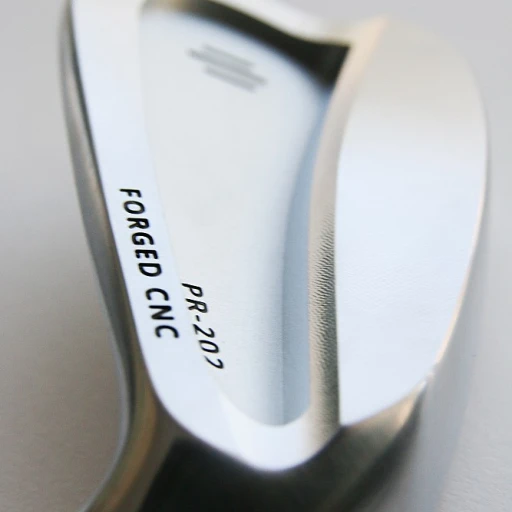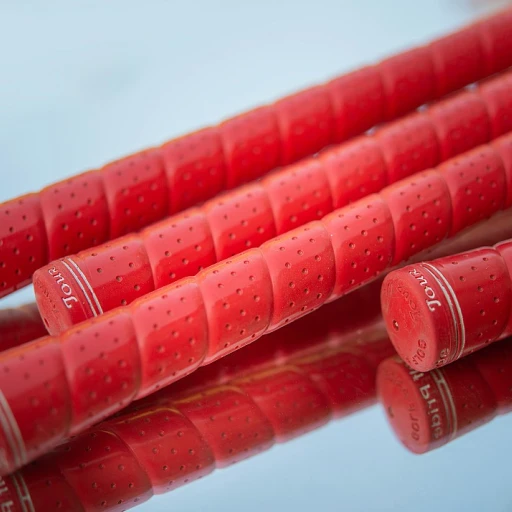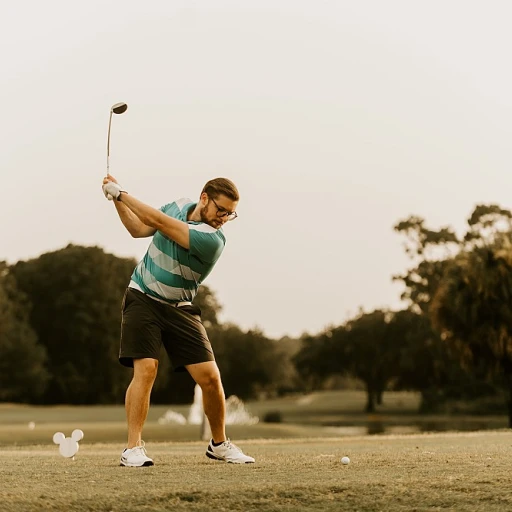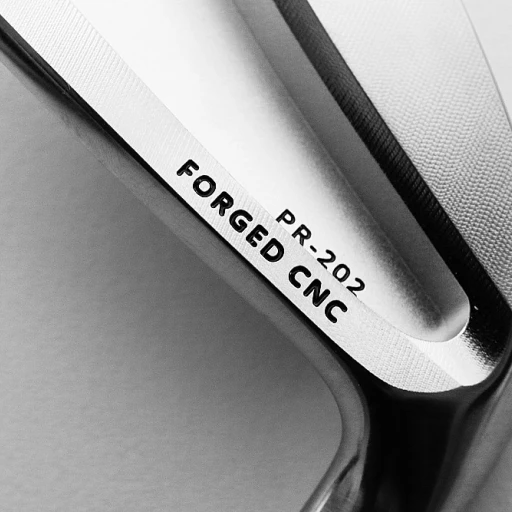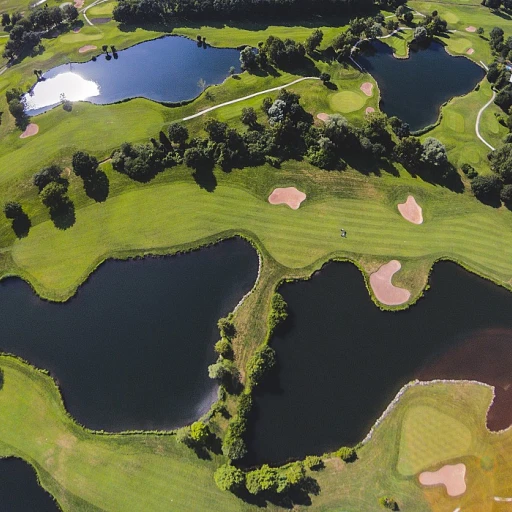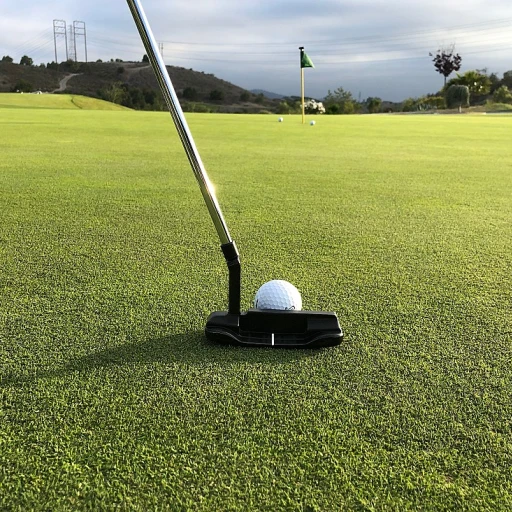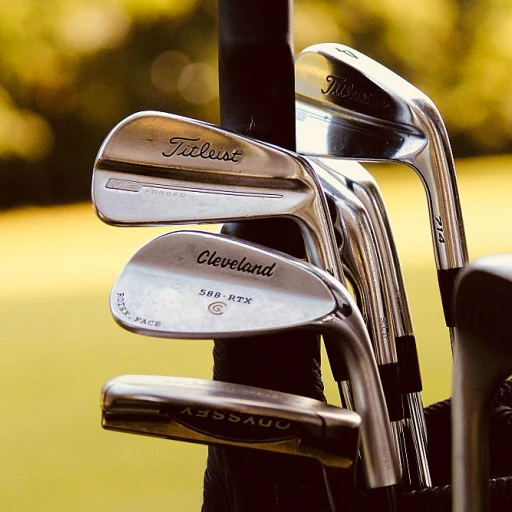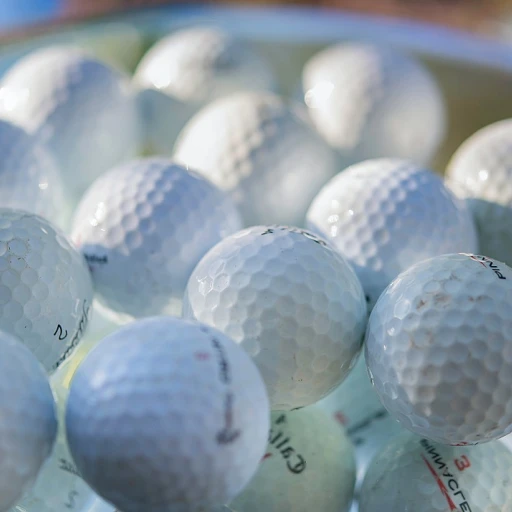
The Evolution of Luxury Golf Equipment
Tracing the Path of Luxury in Golf Equipment
The world of golf has seen a remarkable evolution in the realm of luxury products. From intricate craftsmanship to the refined choice of materials, luxury golf equipment has transcended beyond mere utility, representing utmost precision and elegance. As golfers navigate courses, where every club head swing and putt counts, the essence of luxury can be felt in every stroke played. Luxury golf equipment not only enhances the game’s experience for players but also signifies a status symbol — a testament to where the sport has come from, and where it is headed. Throughout decades, the competitive edges once drawn from natural talent and training have increasingly been supported by cutting-edge craftsmanship and innovative design. In past eras, wooden clubs were a hallmark of classic golf, creating the foundation for long-standing golf terms and traditions observed today. As players perfected their golf swing, the ball player’s reliance on these clubs was paramount to navigating the course and achieving below score par. Fast forward to the present, not only has there been a shift to more durable and performance-focused materials, but there’s also the undeniable influence of technology – a topic we'll explore further. For those interested in delving deeper into the intersection of tradition and innovation in luxury golf, exploring the luxury golf products associated with rising stars showcases how these elements coalesce in the modern market. Luxury has redefined how golfers, both amateurs and professionals on the PGA tour, connect with their equipment. What sets this category apart is not only the aesthetic appeal but also the aspect of performance enhancement. From producing accurate tee shots on a par hole to executing a flawless short game on the green, luxury golf clubs provide a subtle, yet impactful advantage that discerning players seek.Materials and Craftsmanship: The Hallmarks of Luxury
Crafting Precision with Exceptional Materials
In the realm of elite golf equipment, the true mark of luxury lies in the meticulous attention to materials and craftsmanship. Renowned golf products push the boundaries of excellence by merging tradition with the innovation of modern materials, setting a standard that golf enthusiasts revere. Golf clubs, for instance, are masterpieces of engineering and design, often using high-grade carbon fiber and titanium to attain both strength and lightness. This specialized craftsmanship provides each player with a precise feel for the club head during a swing, enhancing the tee shots and short game. On the putting surface, the performance of a golf ball is equally paramount. Materials like urethane cover and multi-layer constructions offer golfers more control over their strokes, allowing them to seamlessly navigate each hole played, whether it’s match play or the regular rounds. The course of creating bespoke clubs is not just about aesthetics but function as well. Individual club heads are custom-fitted to suit both the right and left handed golfers, ensuring that every player hits their approach shots and drives with optimal performance. This dedication to excellence can indeed make the difference when striving to reach a score par on the leaderboard. These luxury golf products are not merely tools but integral elements that shape the experience and define success on the greens. Investing in such elite equipment can elevate a golfer’s game to meet the exacting standards of the PGA Tour and beyond. By focusing on nuanced details in craftsmanship, these products allow players to potentially reduce the number strokes, pushing their play closer to the perfect game of golf.The Role of Technology in Enhancing Performance
Harnessing Innovation: Luxury Golf Meets Cutting-Edge Technology
As the golf world has evolved, so has the integration of modern technology within the sport, elevating the game to new heights. Current advancements are not just about enhancing the golf swing; they are about refining every aspect of play from the golf ball to the club, and beyond. One of the notable advancements in luxury golf products is the production of high-end golf balls. These golf balls offer players an impressive combination of distance and control, providing better performance both off the tee and around the green. Players can now hit the perfect tee shot with improved ball flight, spin control, and a robust response. Moreover, the evolution of golf clubs plays a crucial role. Luxury manufacturers are employing enhanced materials and technology to elevate the capabilities of the golf club. Club heads are designed to optimize speed, promote excellent transfer of energy during strokes, and support golfers in perfectly lining up their shots. These enhancements make a striking difference when one is aiming for a tough par hole or crafting a delicate approach shot to the putting surface. Golf courses, especially those on the PGA tour, demand precision and accuracy. Technology aids in the design of clubs that adapt to different players' needs. Left handed golfers, for instance, find tailored solutions to improve their performance. With advancements in club head design and shaft flexibility, players can enjoy an adaptive, custom-fit experience. For those seeking to excel, whether in match play or striving to score par, technology is indispensable in luxury golf products, transforming not just playability, but also the enjoyment of the game. For novitiates or seasoned pros interested in improving their short game, it is crucial to explore advancements in golf technology, and top picks for beginner golf iron sets might just be the starting block. This intersection of luxury and technology points towards a promising future where golfers, regardless of their skill levels, can enhance their short game, improve their strokes par, and fully immerse themselves in what modern-day golf courses have to offer.Challenges in the Luxury Golf Market
Overcoming Obstacles in the High-End Golf Market
The luxury golf market, while thriving, faces several challenges that can impact both manufacturers and players. One of the primary hurdles is the high cost associated with premium materials and craftsmanship. As discussed earlier, the use of top-tier materials elevates the quality of golf clubs and balls, but it also drives up prices, making these products less accessible to the average golfer.
Another significant challenge is the rapid pace of technological advancements. While technology enhances performance, it also means that luxury golf products can quickly become outdated. Players investing in high-end clubs or balls may find themselves needing to upgrade sooner than anticipated to keep up with the latest innovations. This constant evolution can be both a blessing and a curse for the luxury market.
Moreover, the luxury golf market must navigate the delicate balance between exclusivity and inclusivity. While exclusivity is a hallmark of luxury, it can also alienate potential customers who feel left out of the elite circle. Golf courses and clubs that cater to high-end clientele must find ways to maintain their allure while also being welcoming to new players.
Environmental sustainability is another pressing issue. As highlighted in other sections, the demand for eco-friendly products is growing. Luxury brands are under pressure to adopt sustainable practices without compromising on quality or performance. This shift requires significant investment in research and development, which can be a daunting task for many companies.
Finally, the luxury golf market must contend with the fluctuating economic landscape. Economic downturns can lead to reduced spending on luxury items, impacting sales and profitability. Brands need to be resilient and adaptable, finding ways to appeal to players even during challenging times.
In conclusion, while the luxury golf market offers unparalleled quality and innovation, it must continuously adapt to overcome these challenges. By addressing these issues head-on, the industry can ensure that it remains a leader in providing exceptional golfing experiences.
Sustainability in Luxury Golf
Embracing Eco-Friendly Practices in Golf
As the luxury golf market continues to evolve, sustainability has emerged as a significant focus. Players and manufacturers alike are increasingly aware of the environmental impact of golf products and courses. This shift is not just a trend but a necessary response to the growing demand for eco-friendly practices in the sport.
Luxury golf brands are now prioritizing sustainable materials and processes. From the golf ball to the club head, manufacturers are exploring innovative ways to reduce their carbon footprint. For instance, some companies are developing biodegradable golf balls that minimize environmental harm when lost on the course. Additionally, the use of recycled materials in the production of golf clubs is becoming more common, ensuring that players can enjoy their game without compromising on environmental responsibility.
Golf courses themselves are also adapting. Many are implementing water conservation techniques and using organic fertilizers to maintain the greens. These practices not only preserve the natural beauty of the courses but also enhance the playing experience for golfers. The term "sustainable golf" is becoming synonymous with luxury, as players seek courses that align with their values.
Moreover, the PGA Tour and other major golf organizations are promoting sustainability initiatives. By setting standards and encouraging clubs to adopt eco-friendly practices, they are driving change across the industry. This commitment to sustainability is not only beneficial for the environment but also enhances the reputation of the sport, attracting a new generation of environmentally conscious players.
In conclusion, sustainability in luxury golf is more than just a passing trend. It represents a fundamental shift in how the sport is played and perceived. As players hit their tee shots and navigate the course, they can take pride in knowing that their game is contributing to a more sustainable future.


